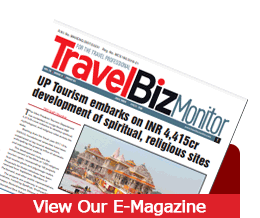– It is imperative for tourism, travel and hospitality to be classified in the concurrent list to ensure a national shared common framework between centre and states for tourism and all its verticals.
– To prevent tourism & hospitality enterprises from filling multiple paperwork for different permissions, certifications & licenses across central & state governments an e- central repository of such information may be created which can auto populate preliminary documents through a ‘standardised template’ and thus save immense documentation time & resources.
– An environment of trust be the basic foundation for all permissions and approvals for ongoing enterprises and thus they should be made available on a self-certification basis against certain timelines. A post facto compliance review can be undertaken after the self-certification through a mutual understating.
– For all permissions and approvals for new projects or greenfield enterprises, they should be made available on a deemed approval basis against pre-defined timelines published on a national approval checklist state wise for tourism. A post facto compliance review can be undertaken after the deemed approval through a mutual understating.
– Services are produced across the country by tourism, travel & hospitality enterprises which leads to valuable jobs creation, forex and GDP growth. It is thus important that all states grant industry classification to tourism travel & hospitality to ensure, rationalisation, standardisation and harmonisation of all levies and cesses while making the industry bankable and organised.
– A common national tourism id can be generated for all enterprises which is applicable across the country similar to the GST id which classifies tourism business by state and by value chain and fast tracks approvals across all departments. This will reduce fragmentation across the tourism industry in India.
– Harmonisation of classification norms be undertaken between all Departments of Tourism aligned to the Ministry of Tourism which will create a single national tourism enterprise profile which must be acceptable by all other departments and ministries across states and centre thus reducing information redundancy.
– Input tax credits for all inputs from states including levies, cesses and taxes on power, fuels, parking, monument tickets, stamp duties, liquor, property taxes etc should be made available across the country for all tourism gst slabs leading to further transistor towards one country one gst for tourism industry and thus reduce tax on tax.
– Care should be taken to ensure that classified tourism travel and hospitality enterprises are not regressively taxed but are progressively incentivised for jobs and economic growth that they are creating in their own region.
– A standard national template can be developed through a consensus approach based upon a role model state which has the most streamlined approvals for each of the verticals of tourism travel and hospitality.


